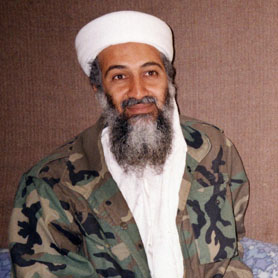 |
| Dr Usama Hasan |
Here's something that’s been on my mind since I heard a piece on the BBC
Today programme on 12th March.
Dr Usama Hasan was vice-chairman and imam at the Masjid al-Tawhid mosque in Leyton, East London, where he delivered a lecture entitled "Islam and the theory of evolution", outlining why Darwin's theory and Islam were in harmony. He expressed his argument in
The Guardian a couple of years earlier.
In January leaflets appeared threatening Dr Hasan’s life. Overseas Muslim scholars issued fatwas denouncing him. All this intimidated Dr Hasan, who feared his house would be firebombed. He felt obliged to issue a humiliating statement which read: "I seek Allah's forgiveness for my mistakes and apologise for any offence caused."
In the BBC interview, he thought a literal interpretation of the Koran could impoverish its message. The BBC’s Robert Piggott put it to him that it could also undermine Islam’s standing in liberal Western countries such as the UK.
“The answer to that has to be yes” he says. He's argued that evolution is not incompatible with the Koran, but he's had to retract that statement. There's an impasse between what religious scholars say and what scientists say. Yes it’s damaging that I'm forced into a retraction, he says, certainly in the West it’s seen that way. Yes he's certainly been intimated by these threats and fatwas.
It’s worth listening to Dr Hasan’s quietly spoken words. Here's a
45-second clip from the
Today broadcast.
To read the full story, see
“Muslim academic forced to retract evolution claim” on The Week website.
Three years ago I wrote about an
anti-evolution rant by a Muslim scholar that I listened to in Cork. It was
Harun Yahya, mentioned by Dr Hasan in his
Guardian article. I was appalled at the lack of dissent from the student audience. Nonetheless, at the time, I filed it away somewhere between nuisance and oddity. But the Usama Hasan episode shows it’s more serious than that.
The big question is why?
The explanation usually offered for this antipathy to science is that it's a reaction to colonialism. This argument is well expressed by Wasim Maziak in an essay
“Science in the Arab World: Vision of Glories Beyond”
He says science was caught in the cross-fire between anti-colonialism and modernity. “Subconsciously for many Arabs, modern science's ties to the West, to rationalism, and to natural materialism gave it the flavour of enmity. And because science cannot be practiced nowadays without close collaboration with Western academic institutions, research has become, in the minds of many Arabs, a suspicious activity and yet another potential gateway for Western incursion.”
This state of affairs has been exacerbated by the dictatorships which since de-colonisation have dominated so many Arab countries. Science needs an atmosphere in which competing ideas can jostle each other. Authoritarian regimes instil subservience to orthodoxy. Science can't flourish in such an environment. As a consequence there has been no-one to speak up for science and act as a counterweight to the religious fundamentalists.
Well it’s an explanation but I don’t find it a very satisfying one. “You may think you're good at science and technology but we’re not playing your game”. A more dignified riposte would be “Oi! Think you're good at science? Think again, we were there first!”
Two more things need to be said. Antipathy to science is also widespread amongst the Tea Party and in the US bible belt. There too they resent colonialism. In this instance, from the liberal Washington élite. The other is that anti-science is far from a universal attitude in the Arab or Muslim world. The BBC report said that opinion at the East London mosque was finely balanced.
A prominent advocate for a new Muslim science is
Jim al Khalili, an Iraqi-born physicist and historian of science, who has written the story of the scientific achievements of the medieval scholars of the golden age of the Islamic Empire between the 8th and 15th centuries.


